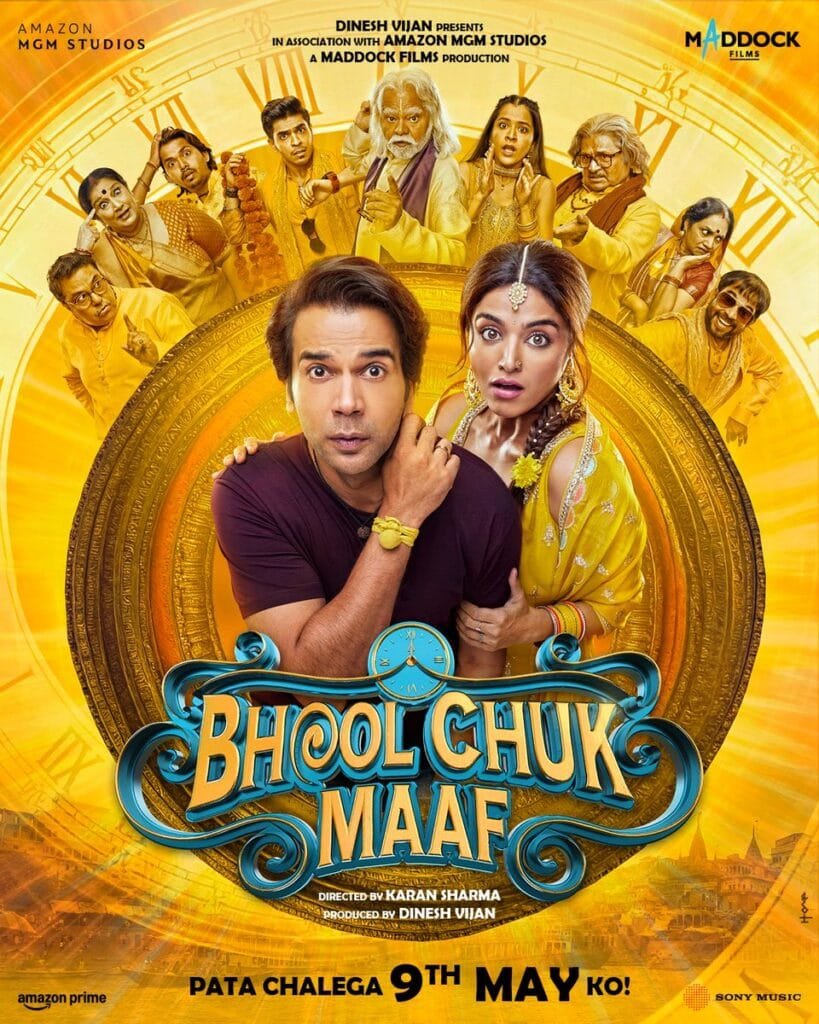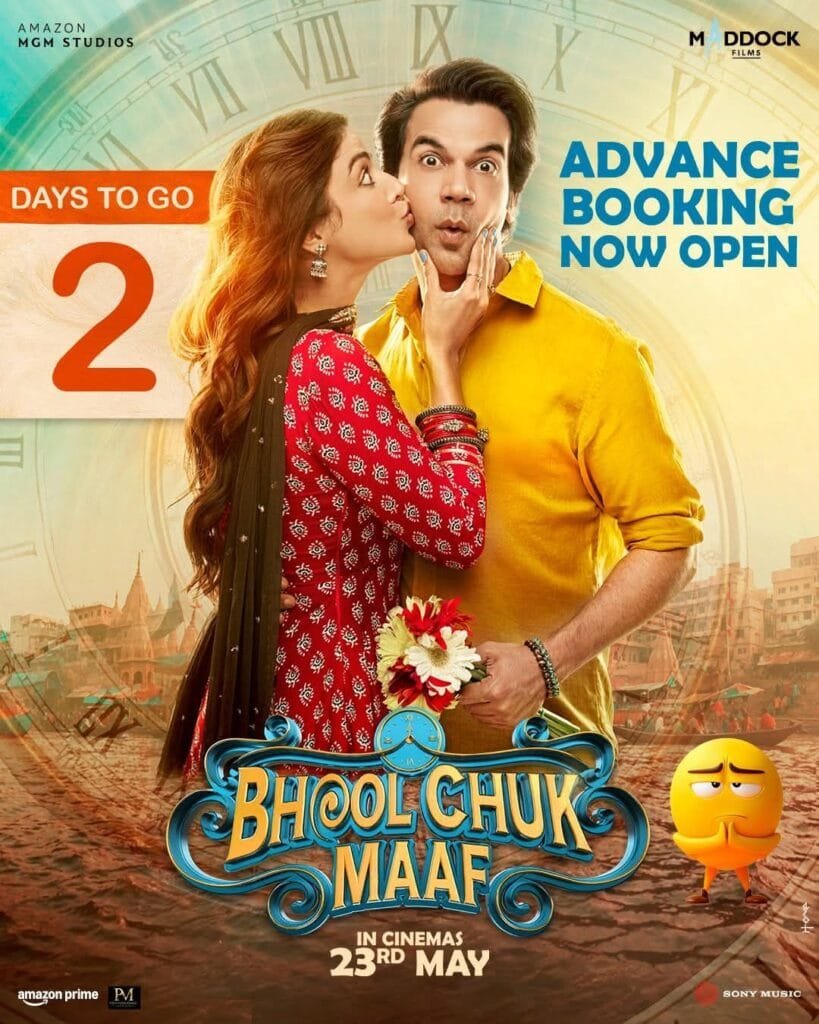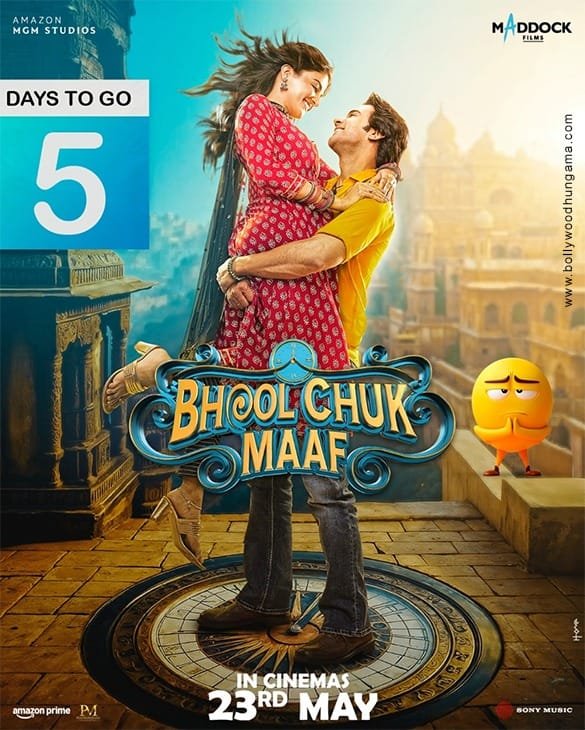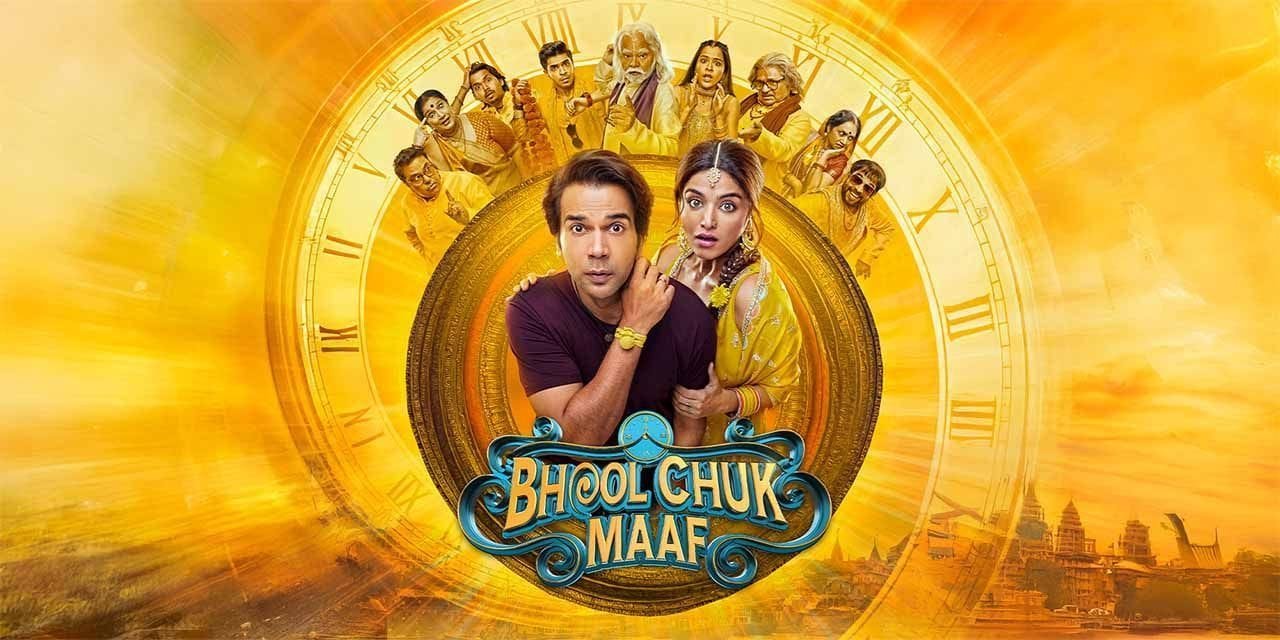“Bhool Chuk Maaf,” directed by Karan Sharma, attempts to offer a unique spin on the time-loop genre, blending it with spiritual-fiction and a social commentary on India’s obsession with government jobs. Set against the vibrant, culturally rich backdrop of Varanasi, the film introduces us to Ranjan Tiwari (Rajkummar Rao), a seemingly lovable slacker caught in a perpetual loop of his Haldi ceremony. While it aims for an emotionally resonant journey of self-discovery, much like its Hollywood counterpart “Groundhog Day,” the film often meanders, struggling to effectively integrate its various narrative threads.

Acting
Rajkummar Rao, a veteran of playing charming small-town characters, once again delivers a performance with palpable glee. His comedic timing is commendable, and he carries the film on his shoulders, evoking both sympathy and laughter as Ranjan grapples with his cyclical predicament. He embodies a physical humor that echoes classic performers like Govinda and early Akshay Kumar. Wamiqa Gabbi, as Titli Mishra, is portrayed as a free-spirited and industrious woman who acts as a foil to Ranjan. While she shows sparks of promise and shares a decent on-screen chemistry with Rao, particularly in their comedic scenes, her portrayal occasionally leans towards being intellectually thick rather than emotionally complex. The supporting cast, including seasoned actors like Seema Pahwa, Raghubir Yadav, and Sanjay Mishra, are unfortunately underutilized, their talents largely wasted in underdeveloped roles.

Directing and Technical Aspects
Karan Sharma, as both director and writer, takes on an ambitious task of fusing Indian mythology, humor, and social commentary within a sci-fi framework. However, the execution often feels scattered and lacks inventiveness. The film takes an extended period to establish its central premise, with the initial forty minutes dedicated to Ranjan’s pursuit of a government job, which feels like a separate, somewhat toothless narrative. The time-loop mechanic itself is not fully explored, with the film failing to adequately establish the routines and rhythms of the original day, thus diminishing the impact of the subsequent variations. The sci-fi element, or “spi-fi” as the review terms it, comes across as a mere garnish rather than an integral part of the storytelling. The Varanasi setting is visually appealing, with cinematography, production design, and costume design successfully capturing the local flavor. However, the film struggles to find its cohesive center, leading to a narrative that feels like a series of disjointed situations rather than a tightly woven plot.

Musical Perspectives
While the review mentions “Brahmastra-coded song sequences” and a “song which you will forget the next minute,” it’s clear that the musical aspect of “Bhool Chuk Maaf” doesn’t leave a lasting impression. The songs appear to serve more as traditional Bollywood interjections rather than contributing significantly to the narrative or enhancing the film’s emotional depth. The lack of memorable or impactful musical numbers further highlights the film’s struggle to create a cohesive and engaging experience.
“Bhool Chuk Maaf” attempts to deliver a heartfelt ode to the time-loop genre with an Indian twist, but its execution falls short of its ambitious premise. While Rajkummar Rao delivers a commendable performance, the film’s narrative meanders, its social commentary feels forced, and the time-loop concept is not fully realized. Despite some amusing situational comedy and credible performances, the overall experience feels like a rerun, lacking the ingenuity and emotional resonance needed to truly stand out. It’s a film that promises much but ultimately leaves the viewer feeling cheated, much like the “ethical match-fixing” analogy presented at the outset.
